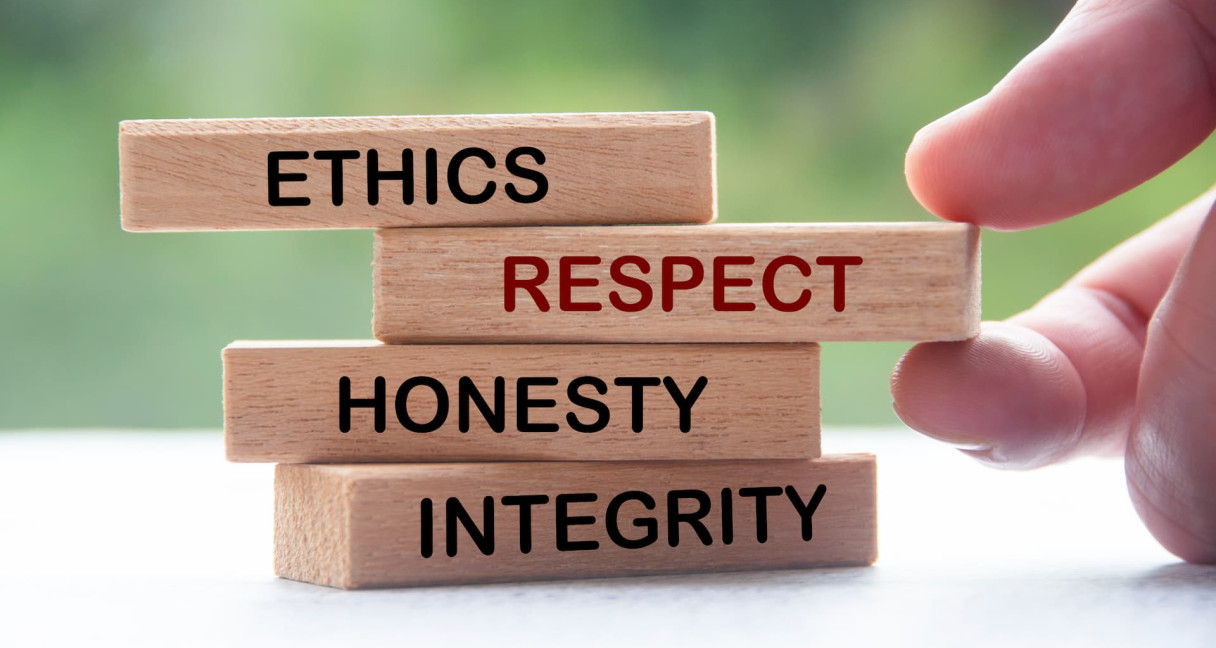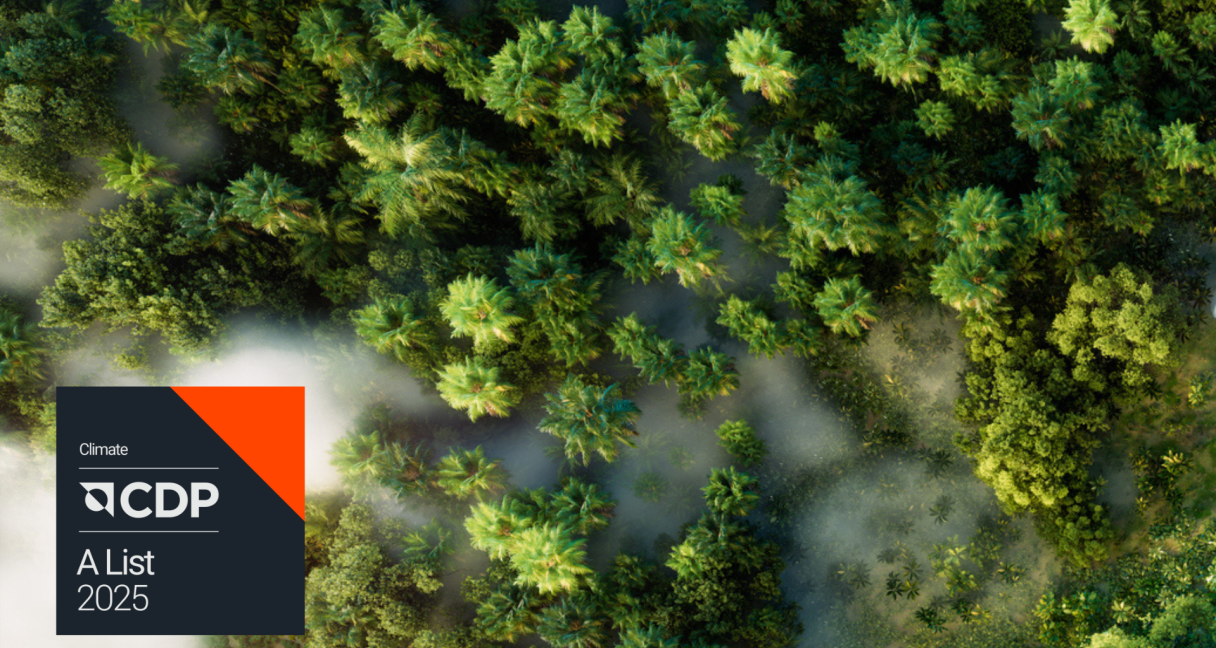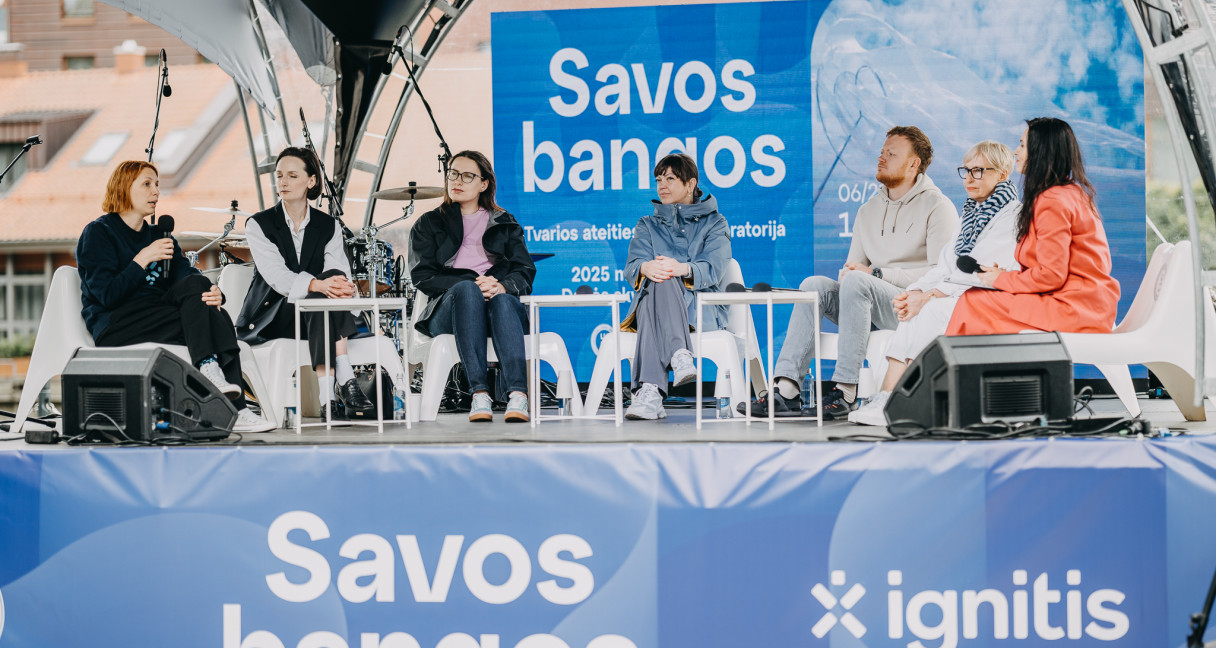
Nature
The generation and distribution of energy and the development of renewable energy not only create the conditions necessary for our daily lives, but also have an impact on the natural environment we are a part of. Developing renewable energy generation reduces GHG emissions, thus mitigating the impact on climate. However, renewable energy projects (wind farms, solar parks and hydropower), as well as ancillary infrastructure pose threats and challenges to biodiversity. Therefore, we regularly examine the impact of our activities on ecosystems and biodiversity, manage the waste generated by our activities, and strive for a balance between business operations and the preservation of ecosystems and resources.
Nature
Air pollution (non-GHG emissions)
The main other (non-GHG) emissions emitted in Group’s operations of generating electricity and heat are nitrogen oxides (NOX
Air emissions from stationary combustion
| Air emissions | Unit | 2023 m. | 2022 m. | 2021 m. |
|---|---|---|---|---|
| SO2 | t | 8 | 7 | 9 |
| NOX | t | 486 | 441 | 570 |
| Particulate matter | t | 18 | 16 | 15 |
| CO | t | 149 | 154 | 139 |
We strictly adhere to air emission allowances. More information on air emission monitoring is published on the following websites of the Group‘s subsidiaries (in Lithuanian):
Water and marine resources
Water is an essential natural resource in many of the Group's activities. In its operations, the Group draws surface water, groundwater and water from supply systems. Water resources are mainly used to ensure electricity generation processes - at the Kruonis pumped storage hydroelectric power plant, Kaunas Algirdas Brazauskas hydropower plant, as well as the combined cycle unit and reserve power plant at the Elektrėnai complex. Appropriate management of water risks directly affects the Group’s performance and is therefore integrated into annual planning, risk assessments and is highlighted in annual sustainability reports.
According to the Water Resources Institute, All water bodies related to the Group's activities, which are dependent on freshwater and marine ecosystems are assigned to the Nemunas river basin districts (RBD) – low, medium-high water stress zones. Wind farms in Poland and the wind farm in Estonia are in low-medium water stress zones and it is important to mention that wind farms require water only in the construction stage.
Much attention is paid to surface water, groundwater monitoring and protection measures. Ignitis Gamyba was the first company to implement the requirements of LAND 2-95 regarding public access to the water levels of the water bodies managed by the company. Hourly data of the Elektrėnai pond and Kaunas hydropower plant pond water levels is available on the website of Ignitis Gamyba (link in Lithuanian).
Biodiversity and ecosystems
Through our activities, we aim to reduce any direct and indirect negative impacts on biodiversity. We prioritize the protection of fish in hydropower production and the protection of the bird population in wind energy production and electricity distribution networks.
The Group has continued to take important steps to avoid or reduce its environmental impacts. The most important steps include the following:
- building new underground power lines in place of old, overhead power lines. The ten-year ESO investment plan (link in Lithuanian), includes goals such as 11 200 km of new underground lines, 67% of 10 kV underground cables in the forests, 132 km of old gas pipelines replaced from old steel pipes to new polyethylene pipelines, among others;
- constantly monitoring water level fluctuations in the Kaunas Lagoon to ensure that the water level fluctuations do not exceed safe ecological limits;
- carrying out periodic ichthyological assessments in the Kaunas Lagoon to assess the impact of the Group’s hydropower plants;
- monitoring the effects of wind farms on bird and bats populations;
- carrying out flora and fauna monitoring studies to find out the environmental impacts of solar parks and how those impacts can be reduced and/or compensated;
- the Group’s GHG emissions reduction targets have been validated by SBTi.
To ensure safe and reliable supply of electricity and to protect wildlife, ESO, in coordination with the Lithuanian Environmental Protection Agency, relocates stork nests that endanger the electricity grid and human safety in accordance with the Law on Protected Animals, Plants and Fungi.
Read more about impact on biodiversity here.
Resource use and circular economy
The Group has already started the transition to a circular economy and efficient use of resources.
Currently the Group is developing more detailed action plans on how it will transition away from the use of virgin resources and how to increase the use of secondary resources thus enhancing the circularity in its own operations and along the upstream and downstream value chain.
Various waste recovery initiatives are in place in the Group's companies, but more detailed information is only available on the quantities of bottom ash and slag. We plan to start investigating ways to monitor waste recovery in more detail and disclose the information in future reports.
Waste generated by the Group's companies is sorted and passed to waste managers. Currently, more detailed information on how the waste is transferred to waste handlers is finally collected only in the Elektrėnai complex (Reserve capacity), and part of this information is at Ignitis Gamyba (Reserve Capacity and Green Production) and ESO (Networks). The companies record the share recycled, the share used for energy production, and the share disposed of in landfills or composted, representing 3% of the Group's total waste generation.
We plan to start tracking this process in more detail in other Group companies and to disclose information on the further waste management journey in future reports.
The Group’s partners and contractors are subject to the same conduct of business standards.
We seek to build awareness among our clients and the broader public about the need to reduce, reuse, recycle before throwing away materials and objects that cannot be repurposed or recycled. Learn more about the project (link in Lithuanian).



